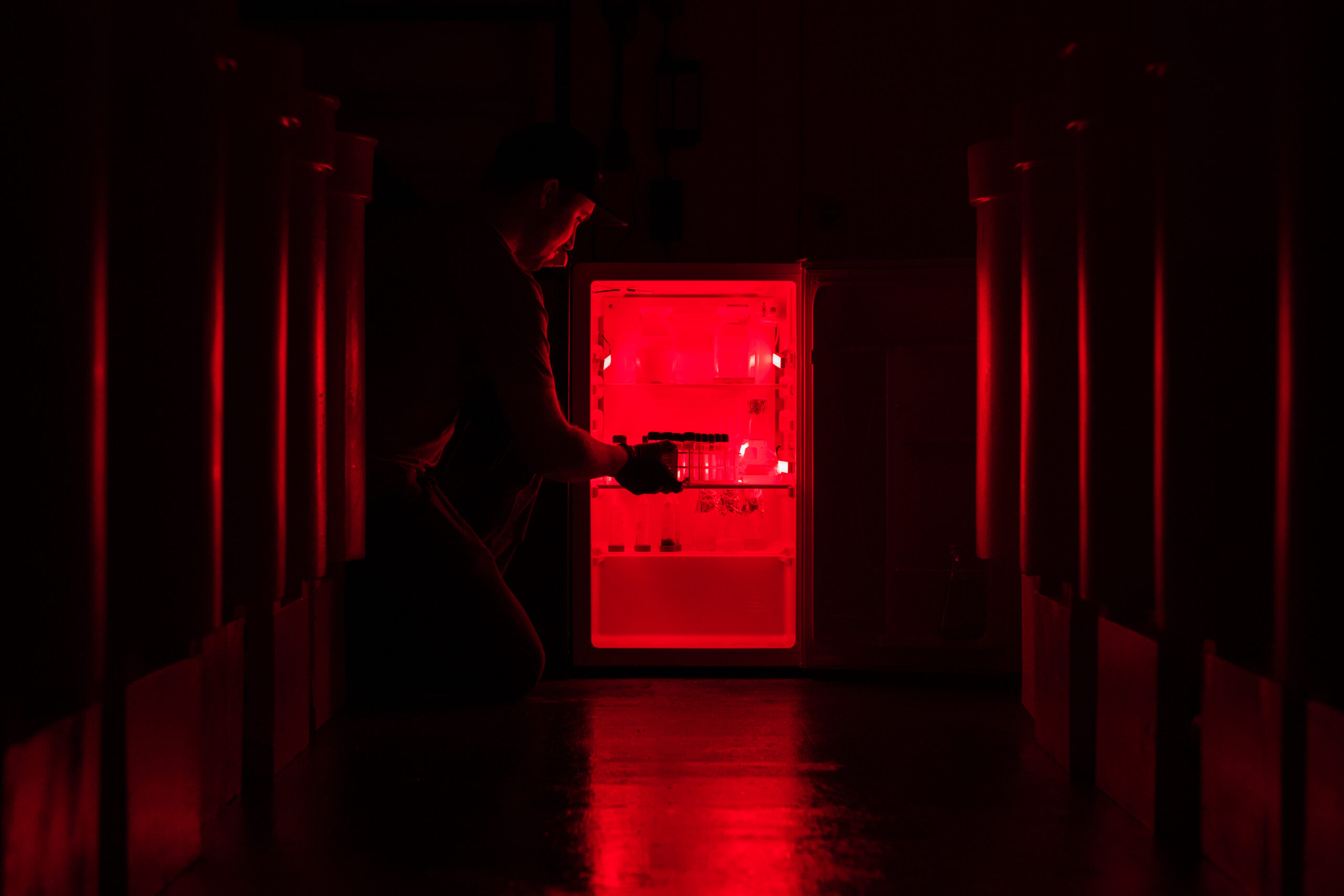RESEARCH SUPPORT PROGRAM (RSP)
A Platform for Applied Seaweed and Restoration Science
West Coast Kelp’s Research Support Programs (RSP) give researchers, restoration groups, and innovators access to our infrastructure, expertise, and permitted field sites. Designed to accelerate applied research and restoration partnerships, the RSP turns our nursery, bioreactors, and marine field sites into an accessible platform for seaweed and restoration innovation.
What the RSP Provides
Cultivation
Infrastructure
Access to a land-based nursery, Seaweed Bioreactors, and in-ocean cultivation systems that enable controlled experiments and scale up.
Field Sites for
Restoration Research
Permitted, monitored coastal testbeds to pilot methods, run trials, and demonstrate real-world performance.
Applied Research
Integration
Co-designed trials embedded in active restoration projects that generate publishable research and measurable ecosystem outcomes.
Technical Expertise
& Grant Writing
Hands-on support for cultivation, permitting, logistics, and grant writing to move ideas from concept to deployment.
Who's it for?
- Academic researchers leading ambitious, high-impact seaweed science.
- Businesses & applied research groups advancing methods for cultivation or coastal restoration.
- NGOs and Indigenous Governments restoring kelp ecosystems and coastal biodiversity.
Why it matters?
High-impact research advances through specified controls, adequate replication, and iterative testing.
Through our innovative nursery infrastructure, permitted field sites, and community partners, we enable real-world implementation so your proposals read as fundable and projects deliver meaningful results.
Get in touch!
The RSP Process
Discovery and Scoping
A 30 to 45 minute call to discuss objectives, hypotheses, replication needs, and timing. We follow up with a scope note and budget estimate, and can discuss possible funding opportunities. Confirm ethics and Indigenous engagement approach.
Project Alignment and Finalization
A 60 to 90 minute session to confirm stakeholder alignment and co-develop experimental design and methods, infrastructure requirements, roles, and data standards.
Logistics and Scheduling
A 60 to 90 minute session to match the design to available infrastructure and permitted sites. Confirm seasonal windows, vessel usage, nursery visits, and field access.
Agreement and Commitments
We issue a concise statement of work and a contract that sets scope, deliverables, roles, data governance, timelines, and a payment schedule. Both parties sign so start dates, access, safety, IP terms, authorship, and data ownership are clear.
Materials and Schedule Lock
Reserve nursery capacity, begin cultivation, and book vessels and crews as needed. We issue a project schedule with milestones and responsibilities, and we define an agreed on check-in cadence with key personnel.
Begin Experimental Trials & Data Collection
Begin nursery and/or field trials as applicable.
Data Delivery and Reporting
We deliver analysis-ready datasets in CSV with a data dictionary, site metadata, photo records, and a brief methods note, then review results and plan the next iteration.
Get The RSP Guide

Research Program Partner Guide
Want to know more about how our Research Support Program works? Download our detailed partner program guide to learn how our team supports study design, deployment, and post-analysis.
Ready to meet?
Subscribe to our Quarterly newsletter
HOLDFAST
Anchored in restoration. Rooted in the coast.
